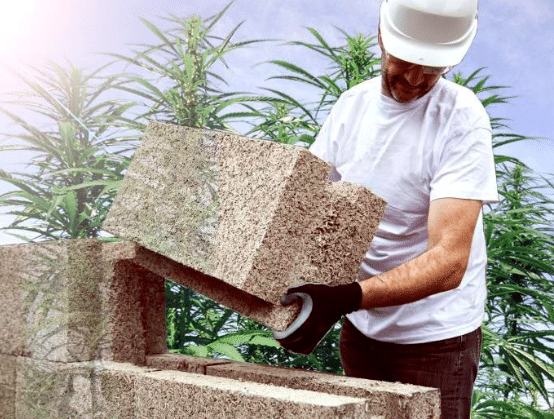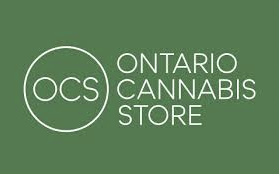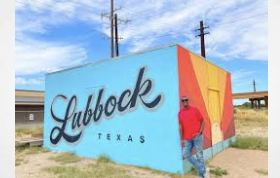Here’s their press release talking about the sort of product Australian politicians should be shouting from the roof about.
But with a product that oozes practicality, commonsense and future CO2 thinking. That will, of course, be far too confusing for the halfwits that currently run Australia’s politics
Are Hempcrete Blocks a Viable Alternative to Traditional Building Materials?
HBA (Hempblock Australia) certainly believes so and are taking all steps to ensure this becomes a reality.
The Australian company has secured an exclusive distributorship, for the USA, Australia and New Zealand, of a hempcrete building system that is cost competitive with traditional construction.
Queensland-based HempBLOCK Australia has begun marketing and selling the bio-based products manufactured by the French firm Vieille Matériaux exclusively into these territories.
Johan Tijssen, Director at HempBLOCK operations in the USA and Australia, said the extensive research his company has undertaken confirmed that conditions are highly favorable to successfully enter and procure business in these markets. Our products and associated construction system solve a number of challenges of the industry.
Home builders are price sensitive. US speculative and project home builders make on average 7.6% net profit per house sold. In the last year lumber prices have increased and there is a shortage of skilled construction workers to meet the demand for new homes. These factors make it difficult to maintain workflow and profitability. Johan believes that HempBLOCKs will solve some of these issues. The HempBLOCKs are factory produced and arrive on-site ready to use just like any block or brick. Interlocking HempBLOCKs, don’t require mortar jointing, are installed up to 70% faster than other building materials. A load-bearing structure is incorporated into the walling system during construction as shown below. Other HempBLOCK products can also be used to created insulated walls in existing buildings.
Other HempBLOCK products can also be used to created insulated walls in existing buildings.
The HempBLOCK LB 300 (Load Bearing Block) is easier, faster and uses less materials in the building envelope resulting in carbon negative walls that act to regulate indoor air quality and comfort. These attributes help to achieve certifications such as LEED and HERS while providing the builder with tax credits, reduced homeowner insurance premiums and ongoing heating and cooling costs besides being non- combustable and termite proof. He says, “Everyone’s a winner in this scenario, including our planet”.
The building system is easily integrated into existing building practices as no additional skills or specialist equipment are required to assemble the HempBLOCK walls. In fact, it requires more skills to build with traditional brick, concrete blocks or timber frames.
The lack to adopt to hempcrete by product users, such as builders, comes from their perceptions that green building products are usually not code compliant, more expensive and require specialized training, skills and equipment. This is the case with mixing and installing hempcrete in situ. Johan has worked extensively with hempcrete installation forming it up and mixing the material on-site.
Johan firmly believes that the HempBLOCK products will revolutionize the way in which hempcrete can be used in buildings and forge ahead to become a mainstream building product.
He sees that happening fast.
“Our research showed us that building house walls with HempBLOCKs is cost competitive ($14/ft2) with traditional building materials and in many cases cheaper. You only need 3 layers of materials rather 4 or 5 to achieve the same results”
The interlocking dry jointed HempBLOCK product, weighing an average of 16 kg, solves many of the barriers to market adoption of hempcrete blocks in the residential construction industry while providing many additional benefits. This is something many standard building materials in housing construction cannot claim.
LB 300 Blocks: Standard Single Column Double Column Lintel
HempBLOCK included in the load bearing system
Buildings made from HempBLOCKs are code compliant, CO2 negative, regulate heat and moisture, absorb sound and are fire, termite and mould resistant.
HempBLOCK insulation / infill products
The residential construction market in Australia is inclining vastly. Last year 29,000 residential building permits were issued. HempBLOCK has identified key residential construction growth regions in Australia and have commenced targeting those markets already achieving some early successes.
In Australia there is one national building code with compliance individually certified by 547 local governments. As a qualified and experienced builder, Johan, knows that each building requires assessment on an individual basis. The structural part of the building is undertaken and certified by structural engineers.
HempBLOCK services support this process by providing technical information and advice as required.
The company also offers architectural and engineering support to help with building designs or work to integrate the HempBLOCK system into existing designs. These services also include providing a 3D model showing the exact configuration of the block system and the type and quantities of all other materials required including lime render.
The HempBLOCKS and load bearing construction system is suitable for the construction of residential buildings up to two stories. Blocks are used to insulate existing buildings providing a rating of up to R4.8 or for Us R28. These products are commercially proven with many buildings already constructed and others currently under construction in Europe, Australia and North Africa.
Recent completed HempBLOCK project Eastern Australia
Johan said the US and Australian units have commenced operations by importing products from their supplier, but the company, in association with it’s French partners, has a goal to set up manufacturing operations in the USA and Australia once certain conditions are met.
Johan expects it will be commercially viable to manufacture blocks in the USA when market demand and the availability of hemp wood are at the required level to justify the investment of local production facilities. We believe that these conditions will be met within the next 2 years.
The HempBLOCKs are formed on an automated production line that employs molds that are filled, vibrated and compacted. Once formed, the blocks are stacked for air drying. The patented system was designed and built by Vieille Matériaux, which started production five years ago.
The nascent US and Australia hemp construction market have so far failed to move beyond craft and demonstration status. But, in the US, a number of fiber processing factories are going online across, primarily to supply a growing demand for animal bedding and textiles.
Since 2018 the volume of hemp grown for CBD oil has emerged and expanded rapidly while hemp grown for fiber is marginal in comparison. It has been reported that the CBD market has become saturated and growers are now focussing on growing industrial hemp as viable markets emerge, such as, textiles and building products like HempBLOCKs. This is likely to significantly increase the supply levels of hemp wood.
HempBLOCK manufacturing plant
U.S. hemp building enthusiasts have said getting hempcrete certified as a construction material is key to expanding the sector. However, much of the material that could be used to support the case for certification in the US has already been done in other countries.
Extensive testing was commissioned by Biosys and resulted in certification to building standards and an independently verified environmental product declaration (EDP) according to European standards. This document provides verifiable and comparable data regarding the environmental impacts across a product’s entire life cycle; from growing the raw materials, production and construction phases through to recycling at the end of the product’s life in 100 years. EPDs are accepted in many countries. Mutual recognition agreements are also in place for building and construction products based on ISO 14025 and EN 15804.
EPDs are recognized by and can contribute to achieving certifications under US programs such as LEED, HERS, Energy Star and Zero Energy Homes. Independent product assessment, technical testing and accreditation was provided by the Scientific and Technical Center for Building (CSTB) which is accredited in France by the Comite Francais d’Accreditation. This organisation is internationally recognised by the ILAC (International Laboratory Accreditation Cooperation). ILAC has a network of mutual recognition agreements among accreditation bodies worldwide including the US and Australia.
Biosys, as part of Vieille Matériaux France, the manufacturer of the HempBLOCK system, is a key player in the European hempcrete sector, the most active in Europe. The Vicat group, a large French company, owns the IP on the block design, construction system and the natural cement binder. Vicat works with Vieille Matériaux on product development and manufacturing. HempBLOCK USA & Australia have a close working relationship with Biosys and ships blocks just about anywhere on the planet.
If you’d like to know more about the products, construction methods, pricing, services and contacts it can be found on hempblockusa.com and hempblockaustralia.com




















